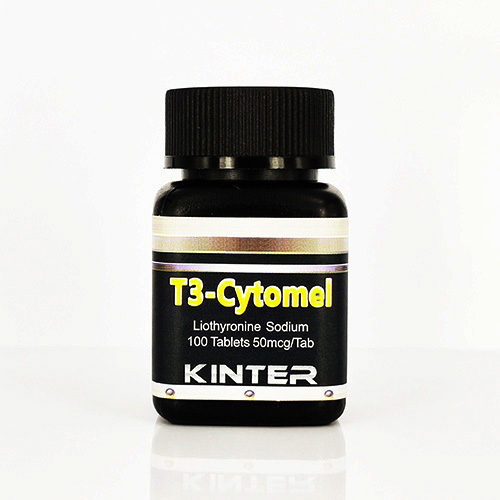Medical uses
Liothyronine is a manufactured form of the thyroid hormone triiodothyronine (T3). It is most commonly used to treat hypothyroidism and myxedema coma. It is generally less preferred than levothyroxine. It can be taken by mouth or by injection into a vein.
Non-medical uses
The thyroid hormones are essential to proper development and differentiation of all cells of the human body. These hormones also regulate protein, fat, and carbohydrate metabolism, affecting how human cells use energetic compounds.
Pharmacokinetics
Liothyronine is a generally less preferred option to levothyroxine (T4) for people with hypothyroidism. It may be used when there is an impaired conversion of T4 to T3 in peripheral tissues. ABout 25 ug of liothyronine is equivalent to 100 ug of levothyroxine.
In thyroid cancer or Graves’ disease, ablation therapy with radioactive iodine (131I) can be used to remove trace thyroid tissue that may remain after thyroidectomy (surgical excision of the gland). For 131I therapy to be effective, the trace thyroid tissue must be avid to iodine, which is achieved by elevating the person’s TSH levels. For patients taking levothyroxine, TSH may be boosted by discontinuing levothyroxine for 3–6 weeks. This long period of hormone withdrawal is required because of levothyroxine’s relatively long biological half-life, and may result in symptoms of hypothyroidism in the patient. The shorter half-life of liothyronine permits a withdrawal period of two weeks, which may minimize hypothyroidism symptoms. One protocol is to discontinue levothyroxine, then prescribe liothyronine while the T4 levels are falling, and finally stop the liothyronine two weeks before the radioactive iodine treatment.
Liothyronine may also be used for myxedema coma because of its quicker onset of action when compared to levothyroxine. Use for the treatment of obesity is not recommended.
